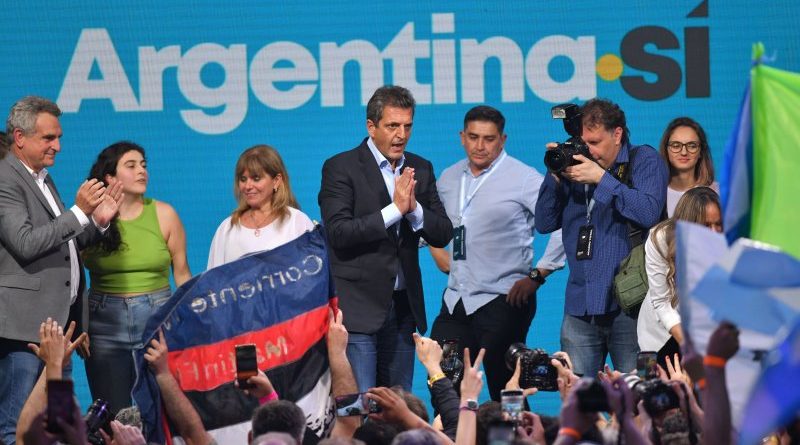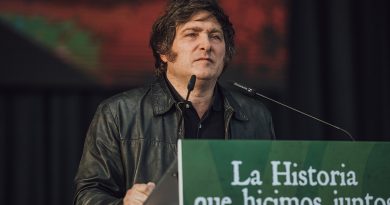Argentinean president election heads to runoff
Megan Pitt
Staff Writer
Argentina’s general election, held on October 22, will head to a runoff after no candidate achieved the required 45 percent of the vote to win, according to The New York Times. Financial Times reports that the election sought to select a new president and vice president, who will both take office on Dec. 10, as well as 130 lower house representatives and 24 senators.
At the forefront of candidates’ platforms was the nation’s economy, which is currently struggling with its worst crisis in twenty years. The Financial Times describes the impending downfall of the Argentine currency: “The peso now stands at a near-record low of around 880 to the dollar on the black market, where Argentines go to convert savings to greenbacks.” Moreover, the country’s inflation rate is a staggering 138 percent. The gross domestic product is predicted to decline by 2.5 percent this year.
The frontrunner after the August primary election, Javier Milei, approached Argentina’s dilemma with the notion of abolishing the nation’s central bank and eliminating the use of the peso for the U.S. dollar, Al Jazeera says. Milei, a 52-year-old right-wing populist, describes himself as an “anarcho-capitalist.” He has publicly accused sex education of being “a ploy to destroy the family” and has claimed climate change is a “socialist lie,” ABC News said.
Despite his radicalism, Milei was the favored candidate going into the first round of the election. However, The New York Times reports that he only captured 30 percent of the vote, while his opponent Sergio Massa acquired 37 percent. Since neither of the candidates achieved 45 percent of the vote, the men will head to a runoff on November 19.
Brian Winter, a Latin American political analyst, told the New York Times that he attributed Milei’s newly weakened position to his conservative attitude. “Argentines desperately want change, but there’s not enough demand for that brand of conservatism,” he said. Winter also told The Guardian that he believes Milei focused too heavily on “culture-war” issues such as abortion and gun laws, driving his voters away. Furthermore, he criticized comparisons Milei’s supporters have made to other well-known right-wing politicians: “I think the people who put the memes together with Milei, Bolsonaro and Trump didn’t do Milei any favours. That brand of conservatism will get you 30 percent in Argentina but it’s not going to get you 50 percent.”
However, Winter believes there is still a chance Milei could strengthen his campaign and win in November, according to The Guardian. He explained that if Milei could adopt a more moderate attitude and obtain the support of other conservative politicians in Argentina, such as former president Mauricio Macri, he could gain more popularity. “[Argentina] is a country where people are desperate for change – so don’t count Milei out,” Winter stated.
Sergio Massa, Milei’s rival, a Peronist, and Argentina’s economy minister, surprised the nation with his win on Oct. 22. Under his care, “inflation surged to 116 percent, the poverty rate hit 40 percent, dollar reserves ran dry, debt rose, and the peso sunk to record lows,” Reuters explained.
Massa’s current chief of staff and vice-presidential candidate, Agustin Rossi, argues that these economic dilemmas are not the fault of Massa. According to Reuters, Rossi gives Massa significant credit, saying that “he took the Ministry of Economy at a difficult time, and he is steering the ship more than adequately. In Peronism, that is highly valued, not running away from difficulties.”
Massa, a leader for the center-left, focused his campaign on economic healing and national unity, reported. He assured the country that the worst of the crisis was over and urged voters against Milei’s budget-cutting plans. Specifically, he criticized on “how much public transportation prices in Buenos Aires would increase without subsidies,” an aspect of government funding Milei plans to cut.
Additionally, Massa emphasized that he would like the government to be more than just Peronist. According to the Associated Press, he said, “I believe it would be a mistake to suggest that the upcoming phase should be tied solely to Peronism. We are heading toward a government of national unity. I will call upon the best from various political forces, regardless of their origin.”
Image courtesy of UPI, EFE


